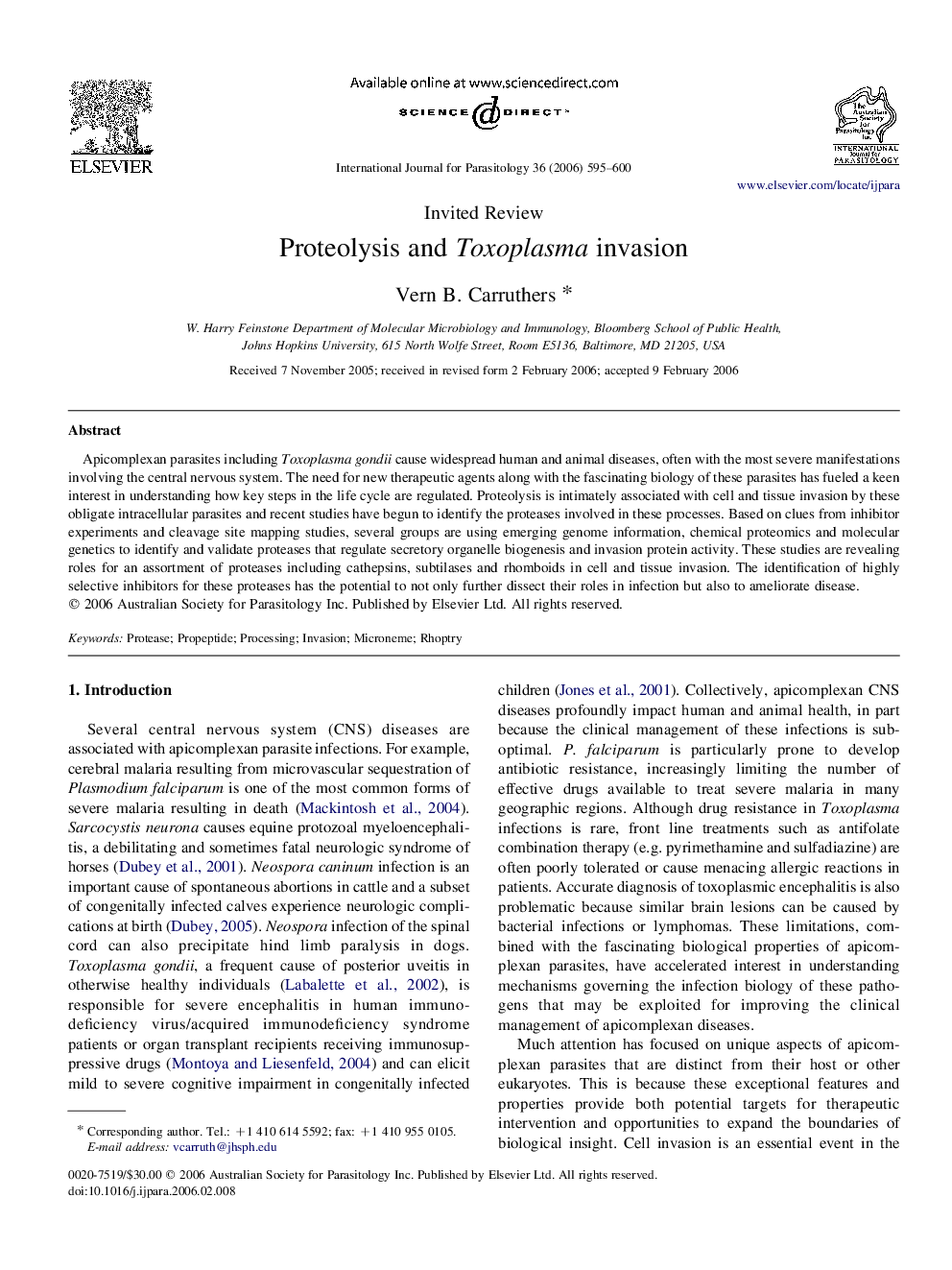| Article ID | Journal | Published Year | Pages | File Type |
|---|---|---|---|---|
| 2436951 | International Journal for Parasitology | 2006 | 6 Pages |
Apicomplexan parasites including Toxoplasma gondii cause widespread human and animal diseases, often with the most severe manifestations involving the central nervous system. The need for new therapeutic agents along with the fascinating biology of these parasites has fueled a keen interest in understanding how key steps in the life cycle are regulated. Proteolysis is intimately associated with cell and tissue invasion by these obligate intracellular parasites and recent studies have begun to identify the proteases involved in these processes. Based on clues from inhibitor experiments and cleavage site mapping studies, several groups are using emerging genome information, chemical proteomics and molecular genetics to identify and validate proteases that regulate secretory organelle biogenesis and invasion protein activity. These studies are revealing roles for an assortment of proteases including cathepsins, subtilases and rhomboids in cell and tissue invasion. The identification of highly selective inhibitors for these proteases has the potential to not only further dissect their roles in infection but also to ameliorate disease.
